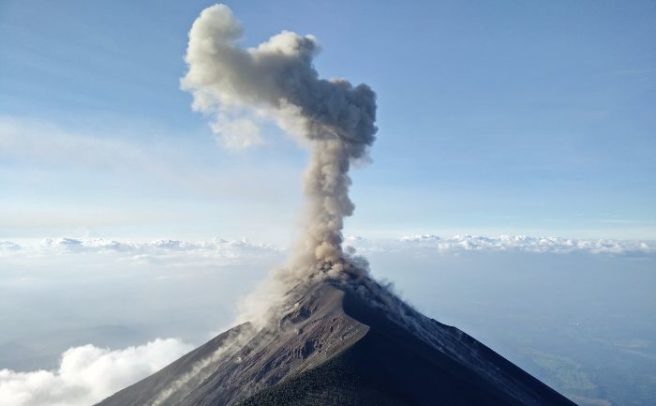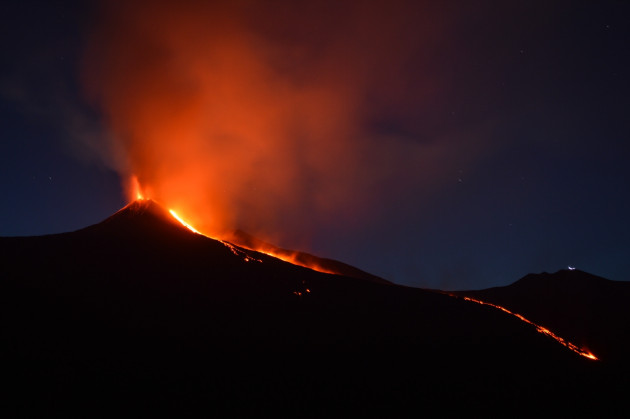
Mount Agung: Thousands flee as volcano begins to erupt in Bali
Mount Agung has sat quietly for over fifty years overlooking the resort island of Bali in Indonesia.
The wanderlust's dream location has been under threat from the active volcano since it began to give warning signs that an eruption may be imminent.
Last night, those warnings came to a head, as the peak of the volcano began to spew plumes of noxious smoke into the air.
INDONESIA: More than 140,000 people had fled their homes in recent months before Mount #Agung began belching smoke 700m (2,300ft) above its summit on Tuesday. #Indonesia pic.twitter.com/Z1bZWWaFvd
— Earthquakes World (@Terremoti7) November 22, 2017
Settlements, which lie in the shadow of the mountain, have abandoned their homes in search of safety as the threat of an eruption continues.
Mount Agung last erupted in 1963, killing almost 1,600 individuals.
Up to 140,000 people are believed to have fled from the areas surrounding the simmering volcano, according to reports.

'Yesterday there was smoke and steam as high as 700 metres, and last night there were tremors for quite a while – around three hours,' the head of Indonesia’s volcanology centre told AFP.
'The mountain continues to spew smoke, but there hasn’t been any big eruption so far.'
The volcano has been rumbling intermittently for a number of months.
Mount Agung eruption? Tourism in Bali is also still safe. #BaliGetaway #euthanasia pic.twitter.com/7Q3LlRnSVM
— Bali Getaway AU (@BaliGetawayAU) November 22, 2017
Indonesia is located on the Pacific Ring of Fire, and area of high volcanic and earthquake activity due to active tectonic plates beneath the earth's surface.
Indonesian volcanoes are some of the most active on the Ring.
Tourists have not yet been warned to avoid the area and flights are continuing to run to and from the island.









